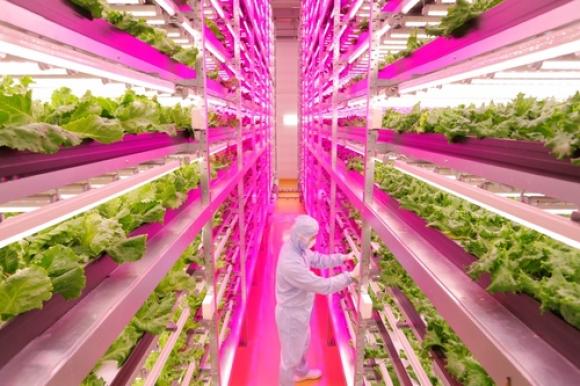-
About
- Our Work
- Get Involved
- Stay Updated
To Go Organic or Not. A Young professional Dilemma!

After getting a job I knew what I had to do to be a responsible consumer. I bravely survived price incentives and bought my yoghurt, cucumber, tomatoes, apples and courgettes in the biological variety at my local supermarket. I have to admit - it wasn't a big effort. The supermarket is 25 meter from my house and responsible consuming being the in thing, most of the things I bought were also available with the eco-label to it without much extra costs. Worth noting is that every year the growth rate of biological products in the Netherlands falls between 5-10%.
But then all this changed when I went on the IAAS world conference that had in attendance over 70 agronomists and food science students from all over the world . Little did I know that this would be the start to questioning my consumption habits. During the conference, whose major theme was "how to feed the planet", we visited many universities, farms and factories. On a visit to the Technical University of Zürich, I was confronted by the decrease of yields in biological monocultures as compared to non-biological farming. In Switzerland, for example, the yields of cereals decrease by 18% if you grow them organically. For potatoes a decrease of 28% is average whereas for sugar beet the decrease goes as higher as 46%.
In search of answers, I spoke to several people at the conference. One of them was Lisanne Meuldijks, a Belgium member of IAAS, who told me that she's against the dogmatic vision of biological food."There is a lot of issues with conventional agriculture but biological agriculture is not the answer. It's as if we say all the scientific research we did on agronomy is useless - forget about it and go back to the basics."
In addition, she concurred that there is little harm in using artificial fertilizers - a practice forbidden if you grow organic and as such, there is need to differentiate between artificial fertilizers and pesticides - with the latter bearing more insecurities.
"I'm not against the use of pesticides but in this field you sometimes see big lobby of industry to get a pesticide accepted".
As a consumer, these pieces of information serve to double my confusion because, if there's a lot wrong in conventional agriculture -think of issues such as the greenhouse gases produced in agriculture, soil degradation, eutrophication- then how do you survive daily groceries without buying food that is grown in an unsustainable manner? Maybe I should not believe in simple dogma's such as biological food - but in the end the only guidelines you have when strolling the paths of a supermarket in Holland are labels such as organic agriculture or sometime fair trade (alike) labels. How do I know that the non organic tomatoes I buy are not from a farm where pesticides ruin local ecosystems? And then I'm only speaking of the environmental implications - there are also many questions on a social perspective, such as income and well-being, to be answered.
I'm again discussing my confusion with Lisanne who tells me that shortening supply chains can be an interesting way to go.
"If you buy tomatoes from Holland you can be sure that they come from greenhouses that are closed systems - not much environmental harm comes from this and it's highly efficient."
Buying from local farmers without too many intermediaries makes it much easier to control where our food comes from. If we leave all power to the 5 sourcing offices : providing all supermarkets in the Netherlands with food - basically, almost all we eat in the Netherlands -, the scale is incredibly large and the price pressure and competition becomes so high it's impossible to control where all the food is coming from.
In addition, buying locally increases the connection between consumers with their food. If you know, or can easily find out, for example by scanning for example the label with your phone, where the product comes from and what is the philosophy of the farmer, then our connection to what we buy can get stronger. If you see what you buy and imagine the labour behind it, maybe even in times of abundance food waste can be countered.
"Besides, why don't we for example grow our vegetables under supermarkets?" Lisanne asks.Using high technological and efficient solutions like LED technology and at the same time improving the connection with our food as consumers are able to see the growth process of plants.
The times when I know exactly the source of my food instead of a simple label stating the country of origin seem to be still quite far away. In the meantime, I'm buying my local vegetable bag and weed in our 25m2 vegetable garden in Amsterdam and secretly hoping that this generation of agronomist come up with a new guideline to help me buying responsibly.
About the author
Related Posts
Comments
No comments made yet. Be the first to submit a commentBy accepting you will be accessing a service provided by a third-party external to https://archive.ypard.net/
Get in touch
Email: [email protected]
YPARD Global Coordination UnitHosted by AGRIDEA and the Czech University of Life Sciences Prague
Lausanne, Switzerland and Prague, Czech Republic - Our Work

